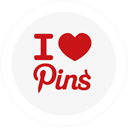
By Scott Lorenz
Westwind Book Marketing
The best sales tool at your disposal can be picking the right book cover. It is no hidden secret that most readers shop with their eyes, and with so many books published each year, you need to make sure that your book cover can communicate to the reader that your book is worth their attention.
Think of it this way; your book cover is like a highway billboard. Just as people are driving past a billboard at 70 MPH, shoppers in a bookstore are walking by your book sitting on a table at the same relevant speed, or they’re quickly scanning a screen on Amazon. Just like a billboard, if you can’t catch their attention, you’ll never deliver the message.
That’s the reason billboards use images to get attention, “a picture is worth 1000 words.” after all.
Images are an important tool to convey the genre and contents to the potential buyer. What are some common images? Attractive men and women, pictures of nature, images of the product etc.
What is the correct image to use? One that does not need any explanation. If your image needs an introduction, then it’s not the right choice. How can you find out? Just show it to people. Ask them what they think the book is about by looking at the cover image. Ideally, the image should do the talking.
While we often hear “You can’t judge a book by its cover,” the truth is that everybody – book buyers, reviewers, media and consumers alike – most certainly do judge a book by its cover.
Choose your title carefully. The best highway billboards are 5-7 words in total because motorists are flying by and cannot comprehend too much information. The average attention span is limited. Putting too many words in the title is the equivalent of trying to take a drink out of a fire hose! If you want to have a fighting chance, give them a short, sweet title and subtitle. Be brief.
Consider the blurb. Blurbs are short two to three sentences of compliment that books have on their back covers. The best blurbs are from well-known experts in the field, famous personalities and authors who have read the book and have given positive reviews. There’s only room for a few, so you need to edit out repetitive comments and keep the best ones for the cover. If you are in love with all your blurbs, then you can print them in full on the last inside pages of the book.
As a book publicist and book marketer I cannot caution authors enough – do not underestimate the importance of a book cover’s design. One reason the task becomes so daunting and painful is that authors too often wait until the end of the process to think through book cover design.
Here are some important items to consider when making decisions on book cover design:
1. Use a subhead to create more descriptions. If you have a 10-word title, you have not properly named the book in the first place.
2. Check with Google for the words most searched on your topic. Type the word that best describes your book in the search box and see what the popular words are on that list. The ranking is very relevant marketing-wise, so try to use those words in your title or subtitle.
3. Visit bookstores and look at the covers of all types of books. What catches your eye? Look at the book face and look at the spines. Which ones are readable and why?
4. Will it play on Amazon? Go to Amazon.com, BN.com, KOBO and Goodreads and search on competitive books in your space. Notice the book covers that catch your eye and the ones that do not. If your cover does not show up well in an Amazon thumbnail, then you are going to lose sales.
5. Don’t let your graphic designer get started without keeping contrast in mind. The reason black ink works so well on white paper is that it produces the best contrast possible.
How does your book look in black and white? Not every publication will be printing it in color.
6. Font size. Many designers are young with great eyesight, but your buyer may not be able to read the tiny font some designers insist upon using. Be practical.
7. The spine. Can you read it from five feet away? If not, neither can browsers in a bookstore.
8. Keep them relevant and short. Consider including a mention on the cover of a foreword written by a famous person or author.
9. Do not overlook creating content on the back inside flaps because consumers sometimes flick through the book to find the price or more information about the book.
10. Print your cover out on a laser printer. Don’t just review your cover on a computer screen, which can make it look considerably better. Print it out in actual size before making a judgment. Mary Heim, former Sales Manager at Sheridan Books says that before you start to design your cover contact your printer for a cover layout and cover stock and coating samples. When you have your cover complete have the printer do a test on the files to make sure they work for the printer and ask for samples of the printer’s work.
11. When choosing a book design ask yourself how the cover will look on your website home page. Branding is important, so you’ll want to use the same design elements on your website that you do on your book cover.
12. Finally, the most important rule in book publishing and book marketing – know your reader! All books have a target reader and in all genres, there are varying degrees of readers. Targeting the reader who is most likely to purchase your book is critical. Authors who know the demographics of their readers are equipped to assemble the fonts and graphics best able to grab the reader’s eye and instantly convey the message that “this book is for you.”
The Bottom line: Get involved early in the entire book publishing design process and get at least three creative concepts for the front cover, back cover, and spine. Don’t let it be the ‘last thing’ you do.
Need help titling a book? Check out my award-winning, bestselling book: Book Title Generator- A Proven System in Naming Your Book at: http://www.booktitlegenerator.net.
If you need more help, I’ve written on how editing and proofreading can make your writing shine, and on the power and art of brevity for authors. I’ve also written a detailed article on how you can generate buzz around your book to help your book get the attention it deserves.
About Book Publicist Scott Lorenz
Book publicist Scott Lorenz is President of Westwind Communications, a public relations and marketing firm that has a special knack for working with authors to help them get all the publicity they deserve and more. Lorenz works with bestselling authors and self-published authors promoting all types of books, whether it’s their first book or their 15th book. He’s handled publicity for books by CEOs, CIA Officers, Navy SEALS, Homemakers, Fitness Gurus, Doctors, Lawyers and Adventurers. His clients have been featured by Good Morning America, FOX & Friends, CNN, ABC News, New York Times, Nightline, TIME, PBS, LA Times, USA Today, Washington Post, Woman’s World, & Howard Stern to name a few.
Learn more about Westwind Communications’ book marketing approach at https://www.WestwindBookMarketing.com or contact Lorenz at [email protected] or 734-667-2090 or fill out the form below. Follow Lorenz on Twitter @aBookPublicist. Want help titling a book? Check out Scott Lorenz’s new award winning, bestselling book: Book Title Generator- A Proven System in Naming Your Book www.BookTitleGenerator.net.
Would you like help promoting your book?
If so, tell us a little about your book. What is the title? Do you have a publisher? What is the publish date? How many pages is your book? What is the cost? Do you have web site? What is your specific goal I.E., to make money, raise awareness, get the attention of an agent or publisher, sell the story to a movie or TV studio or something else?
Submit the form below with this information and we’ll get back to you as soon as possible. Thank you!


